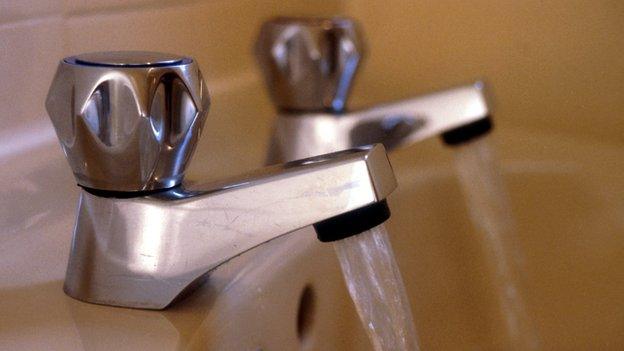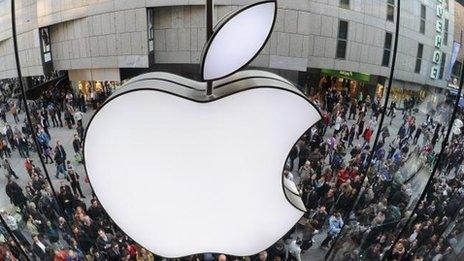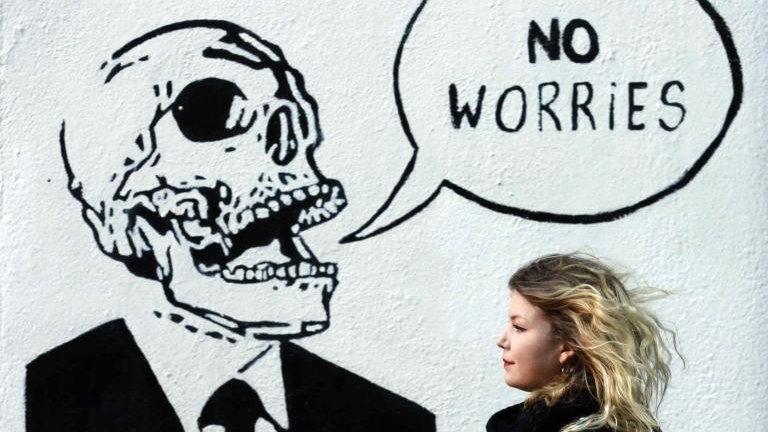Irish budget: Michael Noonan is to abolish 'Double Irish' tax structure
- Published

Irish Finance Minister Michael Noonan hailed the Republic of Ireland's ongoing economic recovery as he unveiled the state's first non-austerity budget since 2007
The Irish finance minister has said he is abolishing the controversial "Double Irish" tax structure.
It has allowed large multinational firms like Facebook to legally shift huge profits from Ireland to countries that are considered tax havens.
Michael Noonan told parliament the tax scheme will be closed to new entrants next year and phased out by 2020.
He made the announcement as he delivered the Republic of Ireland's first non-austerity budget since 2007.
The "Double Irish" exploited international differences in the tax residency rules for companies.
'Major sacrifices'
Mr Noonan said that, in future, all companies registered in Ireland must be tax resident in Ireland.
However, another Irish business tax policy, which has also attracted criticism from some European leaders, will not change.
Mr Noonan robustly defended the Republic of Ireland's 12.5% corporation tax rate, which has been a cornerstone of the economy for many years.
"The 12.5% tax rate never has been and never will be up for discussion," he said. "The 12.5% tax rate is settled policy. It will not change."
Opening his budget speech, Mr Noonan hailed the success of the Republic of Ireland's ongoing economic recovery, saying the state's finances were now "under control" and Irish economy was "growing at the fastest rate among developed economies".
"The road we have travelled to get to this point has been very difficult and the Irish people have made major sacrifices, but the policies pursued by this government have worked and the recovery in the Irish economy is well underway," he said.
'Christmas bonus'
As expected, Mr Noonan has cut the top rate of tax from 41% to 40%.
The point at which taxpayers enter the top band also rises to 33,800 euros (£26,900) from 32,800 euros (£26,100).
There are also changes to the thresholds of the Universal Social Charge - otherwise know as the bank bailout tax.
Mr Noonan is introducing tax measures to support Irish farmers and added that the 9% VAT rate for the hospitality sector, which was reduced to boost tourism in 2011, had been a "great success" and would be retained.
His colleague, Minister for Public Expenditure and Reform Brendan Howlin, announced a number of public spending increases.

IMinister for Public Expenditure and Reform Brendan Howlin (left) and Minister for Finance Michael Noonan revealed a series of tax cuts and public spending announcements
He said benefit recipients are to get a 25% "bonus" in their social welfare payments at Christmas.
From January, child benefit payments will increase by five euros (£4) per child each month.
Single elderly people will see their "living alone" social welfare allowance rise slightly, from 7 euros 70 cents (£6) per week to nine euros (£7).
'Collective achievement'
Mr Howlin said the Republic of Ireland's improving economic statistics were a "tribute to the Irish people".
"Not everything is mended, not everything is yet as it should be," he said.
"We still have a way to go. But our collective achievement in the face of adversity is a considerable one."
Mr Noonan said the Irish economy recovery had "not spread across the country yet and many families have yet to experience it".
He added that for many families it would only begin when they got a job or saw a loved one, who had emigrated during the crisis, return home.
However, he said he believed the budget would secure and broaden the recovery and added the government would "not be returning to the boom and bust model of the past that has spectacularly and repeatedly failed the Irish people".
- Published14 October 2014

- Published30 September 2014

- Published30 September 2014

- Published13 December 2013

- Published13 December 2022